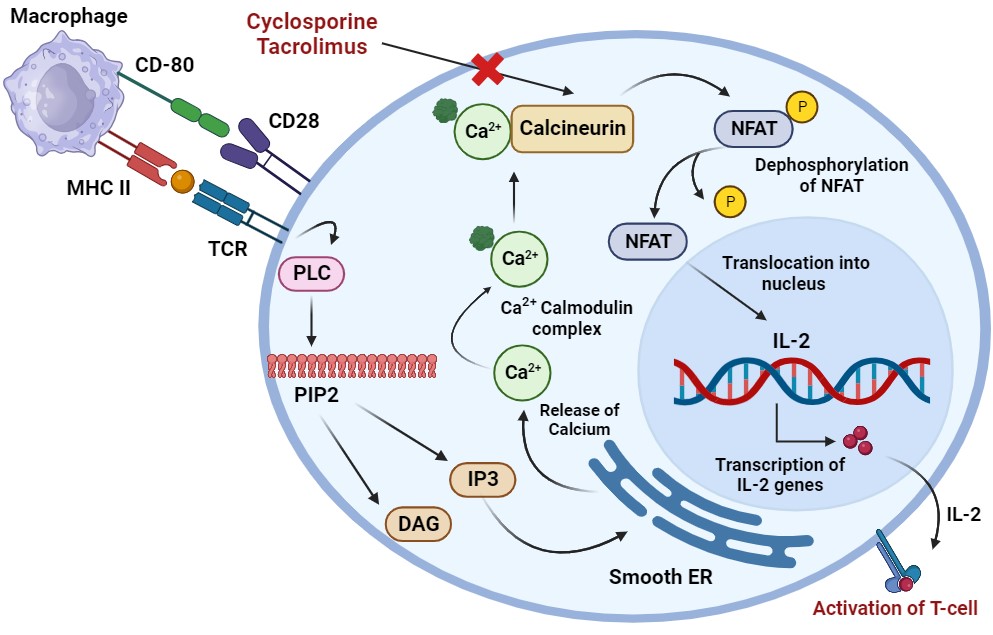Genetic Polymorphism in CYP3A4 and CYP3A5 Genes and their Association with the Clinical Response to Calcineurin Inhibitors; A Narrative Review
DOI:
https://doi.org/10.55627/pmc.004.001.0554Keywords:
Calcineurin inhibitors, cyclosporin, tacrolimus, CYP3A4, CYP3A5, allogeneic transplant, genetic polymorphismAbstract
Calcineurin inhibitors, including cyclosporine and tacrolimus, are the fundamental pillars of immunosuppressant therapy in patients with allogeneic transplants. Calcineurin inhibitors are mainly the substrates for the enzymes CYP3A4 and CYP3A5. The literature search in this review has affirmed that many SNPs located in the genes responsible for CYP3A4 and CYP3A5 expression are associated with influencing the pharmacokinetics of calcineurin inhibitors and eventually maneuvering their efficacy and toxicity profiles. CYP3A5 A6986G (rs776746) had an association with the pharmacokinetics of cyclosporine and tacrolimus in transplant patients. The patients with the CYP3A5*3 (rs776746) allele had higher initial plasma concentrations of cyclosporine and tacrolimus, while those with the CYP3A5*1 (rs776746) allele had higher oral clearance of both drugs, resulting in lower initial plasma concentrations. More patient survival was also associated with the CYP3A5*1 genotype in the Caucasian population. Higher doses of cyclosporine were required in patients with allogeneic grafts carrying the CYP3A4*18B (rs28371759) allele in the Chinese population. In various other populations, it was revealed that therapeutic drug monitoring with calcineurin inhibitors was necessary in patients carrying the CYP3A4*1B (rs2740574) allele. CYP3A4*22 (rs35599367) carrying individuals were more prone to tacrolimus toxicity. CYP3A5A44G also affected the pharmacokinetics and efficacy of tacrolimus in Asian, white, and other populations. Many of these SNPs manifested no associations in numerous populations. Many confounding factors may have canceled out these associations. More studies are required to explore the effects of these SNPs on larger samples in order to validate these findings. Attempts should also be made to discover novel SNPs in these genes to find out more associations that can influence the overall clinical response to calcineurin inhibitors in transplant patients.

Downloads
Published
Issue
Section
License
Copyright (c) 2024 Ahsan Ibrahim

This work is licensed under a Creative Commons Attribution 4.0 International License.







